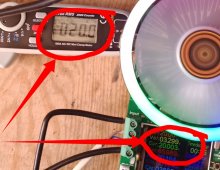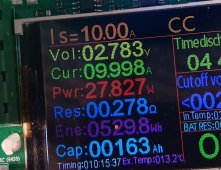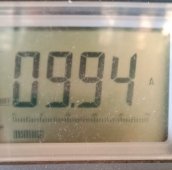I'm looking for a battery capacity tester with data logging functionality. I did some research and found these. Does anyone have experience with them or have other suggestions? Atorch is much cheaper than CBA IV. But apparently, the app is really bad and not usable according to feedbacks.
West Mountain Radio CBA IV
Atorch DL24/P (150 W/180 W)

 www.aliexpress.com
www.aliexpress.com
West Mountain Radio CBA IV
CBA IV - Computerized Battery Analyzer - West Mountain Radio
True constant current battery capacity test with results graphically displayed, constant power testing supported with Extended software upgrade. Discharge current is software and electronically regulated using a solid state switch and fan cooled electronic load. Test any type of battery; coin...
www.westmountainradio.com
Atorch DL24/P (150 W/180 W)

33.04US $ 20% OFF|DL24/P Color 2.4" DC USB tester electronic load lithium battery capacity monitor discharge charge power meter supply checker APP|Battery Testers| - AliExpress
Smarter Shopping, Better Living! Aliexpress.com






